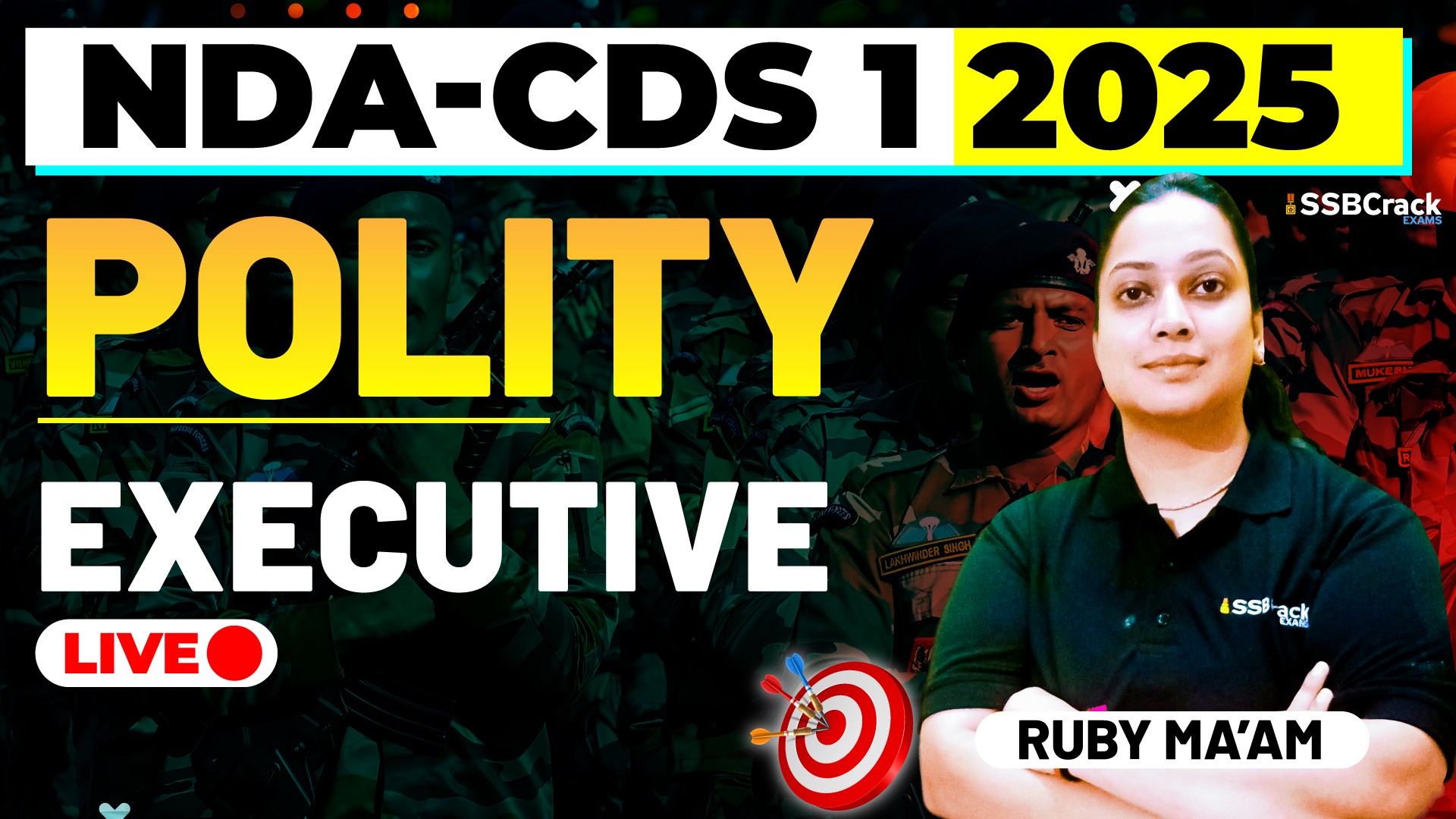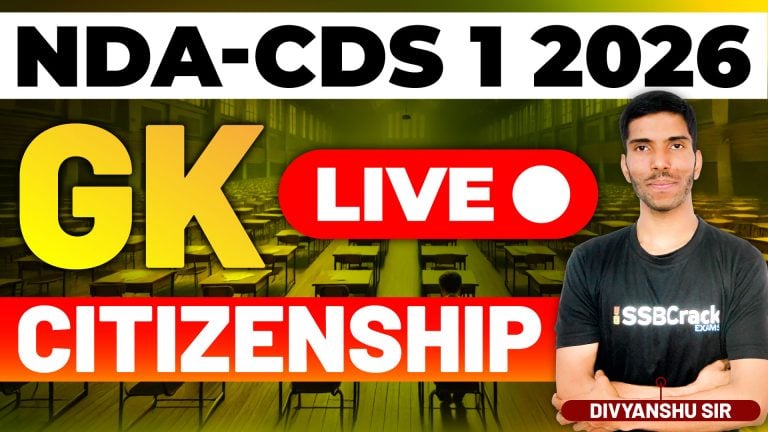For National Defence Academy (NDA) and Combined Defence Services (CDS) aspirants, mastering the subject of polity is essential. One of the most crucial topics in this domain is the Executive—an organ of the government that plays a pivotal role in the governance and functioning of the state. Understanding the Executive’s structure, functions, and responsibilities not only helps in competitive exams but also provides valuable insights into the functioning of the Indian government, a critical aspect for future officers in the armed forces.
What is the Executive?
The Executive is one of the three main organs of the government, the other two being the Legislature and the Judiciary. Its primary function is the enforcement of laws, policies, and decisions of the state. The Executive is responsible for day-to-day administration and governance. In India, the Executive is divided into two categories:
- Political Executive: This includes elected officials who hold office temporarily, like the President, Prime Minister, and Council of Ministers.
- Permanent Executive: This consists of the civil services and other government officials who assist the political executive in implementing decisions.
For NDA and CDS aspirants, an understanding of both is crucial, as they provide insight into how the government operates and ensures stability.
Structure of the Indian Executive
- President: The President is the nominal head of state and functions as the ceremonial figurehead. The President’s powers, although largely ceremonial, include appointing the Prime Minister, giving assent to bills, and acting as the Commander-in-Chief of the Indian Armed Forces.
- Prime Minister and Council of Ministers: The real power lies with the Prime Minister, who leads the government and heads the Council of Ministers. The Prime Minister is the head of the government and is responsible for policy-making and administration. The Council of Ministers assists the Prime Minister and is divided into three categories:
- Cabinet Ministers
- Ministers of State
- Deputy Ministers
- Civil Services: The permanent executive, which includes the Indian Administrative Service (IAS), Indian Police Service (IPS), and other civil servants, plays a vital role in ensuring the implementation of government policies and the smooth functioning of administrative machinery.
Why is the Executive Important for Defence Aspirants?
- Leadership and Decision-Making: As future officers, NDA and CDS aspirants will be placed in leadership roles where decision-making will be key. Understanding how the Executive operates at both the political and administrative levels will help them comprehend how decisions are made and implemented in the government.
- Understanding Government Functioning: The armed forces work in close coordination with the Executive branch, particularly with the Ministries of Defence, Home Affairs, and External Affairs. Officers need to be aware of the chain of command and how policies are formulated and executed by these bodies.
- Role of the President in Defence: The President of India, as the Supreme Commander of the Armed Forces, has ceremonial responsibilities but also plays a vital role in defense-related matters, including the declaration of war or emergency. Familiarity with the President’s powers and limitations is essential for officers in the armed forces.
- Coordination with the Executive: Armed forces personnel must often interact with the civil administration during joint operations, disaster management, and peacekeeping missions. Knowing the structure and functioning of the Executive will aid in better coordination and communication during such missions.
- Polity in Competitive Exams: The Executive is a frequent topic in the polity sections of both NDA and CDS exams. Questions related to the powers, duties, and functioning of the President, Prime Minister, and other executive offices are common. A clear understanding of this topic will significantly boost the chances of scoring well in these exams.
Key Areas to Focus On:
- Powers and Functions of the President: Understand the ceremonial and discretionary powers of the President, their role in legislative processes, and emergency provisions.
- Role of the Prime Minister and Council of Ministers: Study the powers of the Prime Minister, the difference between the Cabinet and the Council of Ministers, and their collective responsibility to the Parliament.
- Civil Services: Learn about the role of civil services in policy implementation and how they work in tandem with the political executive.
- Emergency Provisions: Focus on the President’s role in declaring emergencies—National Emergency, State Emergency, and Financial Emergency—and its impact on the armed forces.
- Articles in the Constitution: Articles 52-78 in Part V of the Indian Constitution deal with the Union Executive. Articles 153-167 deal with the State Executive. Pay attention to these sections to understand the constitutional provisions related to the Executive.
Conclusion
For NDA and CDS aspirants, understanding the Executive’s role in India’s polity is more than just an academic requirement. It’s an essential aspect of comprehending how the country is governed, how defense policies are formulated, and how officers will work in synergy with the government. By mastering this topic, aspirants can not only excel in their exams but also be better prepared for the responsibilities they will assume as officers in the Indian Armed Forces.







